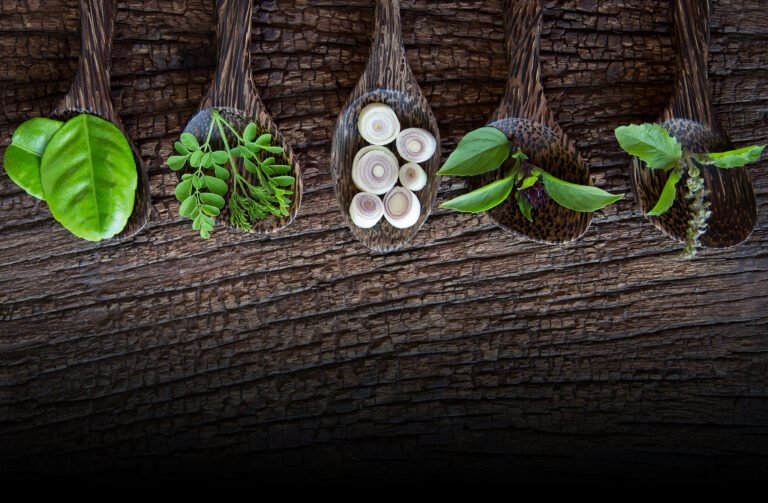As we age, our skin undergoes numerous changes that can lead to a tired, aged, and worn look. Fine lines, wrinkles, and age spots can be pretty frustrating, but what if nature provided a way to reverse the effects of time? For centuries, herbs have been integral to traditional medicine, enhancing health and wellness. Various herbs have potent anti-aging qualities that can refresh and renew the skin and give a shining glow to the face. This article explores the top anti-aging herbs for the face, illustrating how to harness their advantages for a smoother, brighter, and more radiant complexion. Unlock a radiant complexion with anti-aging herbs for face!
How Can I Reverse Ageing Naturally?
To naturally reverse aging, you can change your lifestyle, diet, and incorporate anti-aging herbs and nutrients. Below are some suggestions to help you naturally reverse aging:
- Drink plenty of water to keep your skin hydrated and plump.
- Follow an anti-aging diet by consuming whole, plant-based foods rich in antioxidants, vitamins, and minerals.
- Make exercise a routine to promote circulation and collagen production
- Practice stress-reducing techniques such as meditation, yoga, or deep breathing to manage stress.
- Aim for 7-8 hours of sleep each night to support your body’s repair and regeneration processes.
- Integrate anti-aging herbs like turmeric, ginger, and rosehip into your skincare routine or diet.
- Safeguard your skin from the sun using natural sunscreens and protective clothing to prevent UV damage.
- Quit smoking, as it accelerates aging and is crucial for maintaining a youthful appearance.
- Limit your alcohol consumption, as excessive drinking can lead to premature aging.
- Ensure you get sufficient vitamin C, E, and omega-3 fatty acids.
Some natural anti-aging solutions include:
– Using face masks with honey, avocado, or oatmeal
– Exfoliating with sugar or salt
– Moisturizing with coconut oil or olive oil
– Trying facial yoga or massage
Remember, natural aging reversal requires patience and time. Concentrate on incorporating sustainable lifestyle changes that support overall health and well-being.
Why is Your Skin Aging Faster than You Are?
Multiple reasons can cause your skin to age faster than your actual age. Here are some potential factors:
- Exposure to UV radiation: Prolonged exposure to the sun’s ultraviolet rays can result in wrinkles, fine lines, and age spots.
- Smoking: The act of smoking speeds up the aging process of the skin by reducing blood flow, harming collagen, and causing wrinkles.
- Poor dietary habits: A diet high in processed foods, sugar, and unhealthy fats can lead to inflammation, oxidative stress, and skin aging.
- Dehydration: Inadequate hydration can lead to dryness, lacklustre skin, and wrinkles.
- Stress: Persistent stress can result in inflammation, skin problems, and accelerated aging.
- Lack of sleep: Poor quality and duration of sleep can lead to swollen eyes, dark circles, and premature aging.
- Environmental pollution: Exposure to toxins, and heavy metals can harm the skin and speed up ageing.
- Genetics: Your genetic composition can impact your skin’s ageing process.
- Hormonal variations: Fluctuations in hormones during menopause, pregnancy, or puberty can affect the texture and appearance of the skin.
- Use of harsh skincare products: Products with aggressive ingredients, exfoliating too frequently, or stripping the skin of its natural oils can lead to irritation, dryness, and premature aging.
To counteract accelerated skin aging, focus on:
– Shielding your skin from UV radiation
– Maintaining a well-rounded diet rich in antioxidants and omega-3 fatty acids
– Keeping your body hydrated
– Managing stress
– Getting adequate sleep
– Using mild, nourishing skincare products
– Avoiding smoking and exposure to pollution
Prevention and timely intervention are crucial in preserving healthy, youthful-looking skin.
Top 10 Anti-Aging Herbs for Face
Turmeric: Reduces Inflammation, Fine Lines, and Wrinkles
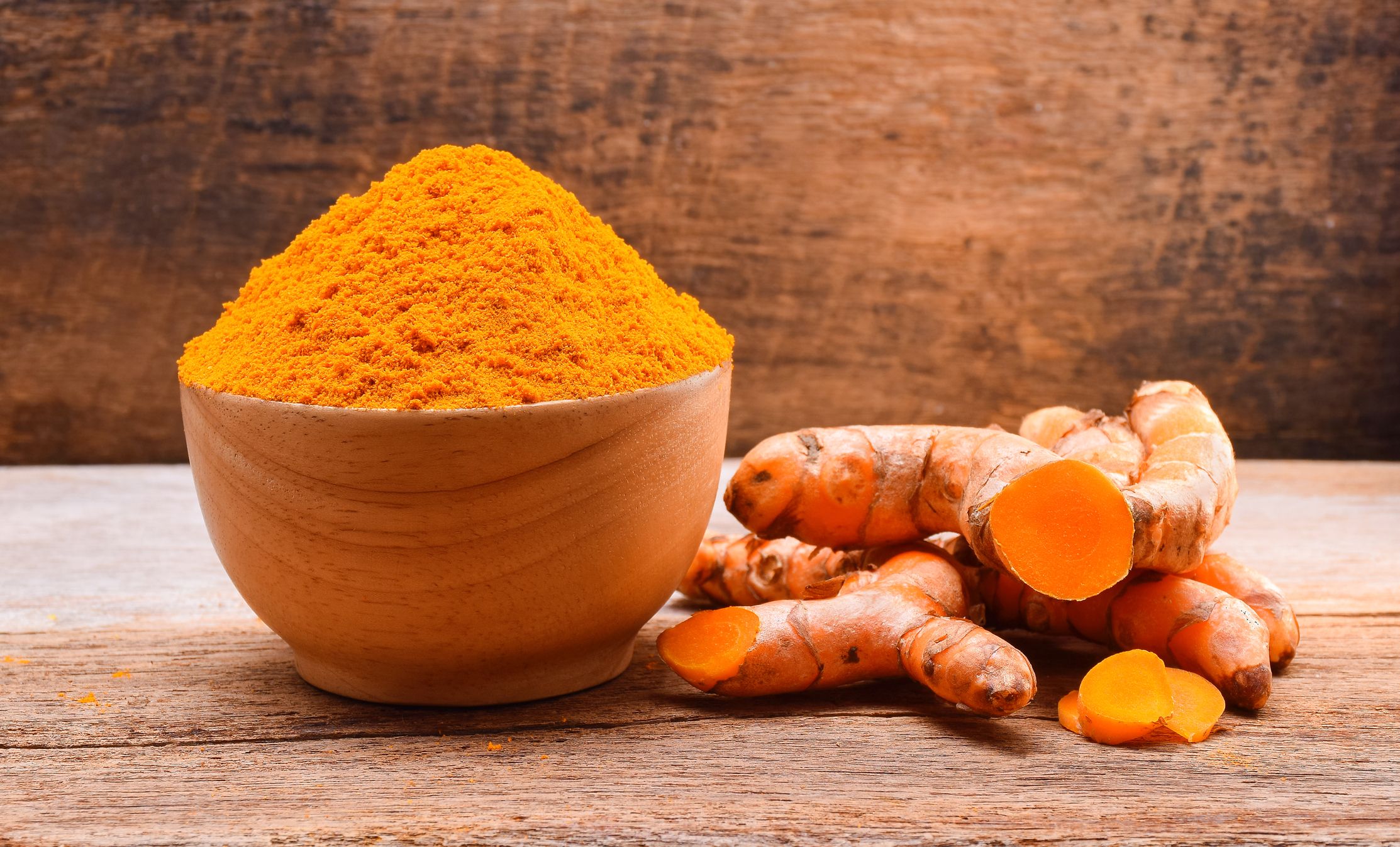
Turmeric, a naturally derived spice commonly used in Indian and Middle Eastern cuisine, has been trusted for its health benefits and anti-aging properties for many years. The active ingredient curcumin in turmeric provides several advantages for the skin, offering a holistic and natural approach to skincare:
– Reduces swelling: Curcumin’s strong anti-inflammatory properties can help ease redness, discomfort, and puffiness.
– Diminishes fine lines and wrinkles: Turmeric’s antioxidant properties combat free radicals, lessening signs of aging and encouraging smoother skin.
– Enhances skin flexibility: Turmeric helps preserve skin flexibility, firming and toning the skin for a more youthful look.
– Evens out skin tone: Turmeric’s natural antiseptic and antioxidant properties can help balance skin tone and decrease hyperpigmentation and dark spots.
– Calms skin conditions: Turmeric’s anti-inflammatory and antiseptic properties may help relieve acne, rosacea, and eczema symptoms.
To utilize turmeric’s benefits for your skin:
- Combine 1 teaspoon of turmeric powder with a few drops of water or yoghurt to make a facial mask.
- Incorporate turmeric into your skincare regimen: Seek out curcumin or turmeric extract products.
- Consume turmeric orally: Enjoy turmeric tea, incorporate it into your meals, or take supplements (consult a healthcare professional beforehand).
Ginger: Improves Circulation, Reduces Age Spots, and Promotes Collagen Production
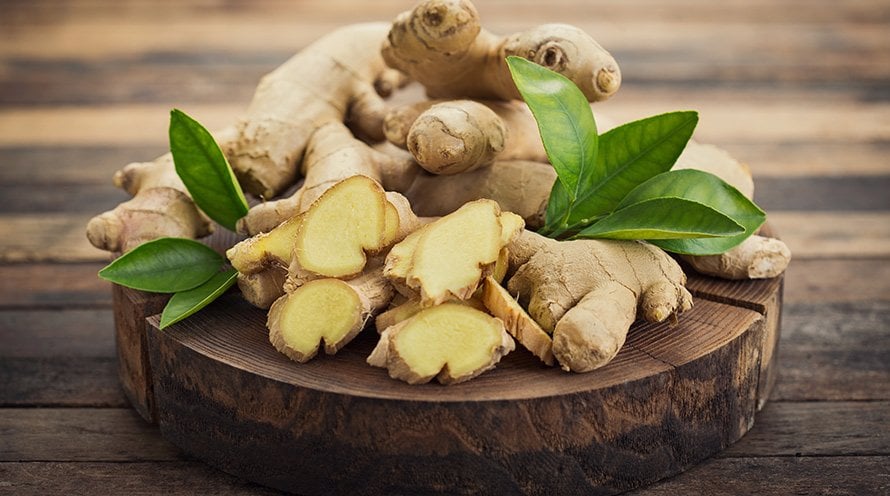
Ginger is a flexible rhizome that possesses anti-inflammatory and antioxidant qualities, providing multiple advantages for the skin:
– Improves circulation: Ginger enhances circulation by warming the skin, boosting blood flow, improving skin tone, and decreasing puffiness.
– Reduces age spots: Ginger’s antioxidants and natural bleaching properties help diminish hyperpigmentation and age spots.
– Promotes collagen production: Ginger boosts collagen production, enhancing skin elasticity and firmness.
– Soothes and calms skin: Ginger’s anti-inflammatory properties alleviate redness and irritation, making it an effective remedy for acne, rosacea, and eczema.
– Hydrates skin: Ginger’s natural moisturizing properties help retain moisture, leaving the skin smooth and supple.
To utilize the benefits of ginger for your skin:
- Create a ginger face mask by grating fresh ginger and blending it with honey or yoghurt.
- Incorporate ginger essential oil by adding a few drops to your skincare products or using it in aromatherapy.
- Integrate ginger into your diet: enjoy ginger tea, use it in your cooking, or consider taking supplements after consulting a healthcare professional.
- Use grated ginger with sugar or salt to create a natural exfoliating scrub.
Rosehip: High in Antioxidants, Regenerates Skin Cells, and Reduces Wrinkles

Please remember the following information about rosehip, which is the fruit of the rose plant, contains a rich concentration of antioxidants, vitamins, and fatty acids that provide various benefits to the skin:
– Abundant in antioxidants: One of rosehip’s standout features is its abundance of antioxidants. These powerful compounds act as a shield, protecting the skin from free radical damage and thereby reducing visible signs of aging.
– Regenerates skin cells: Rosehips’ high vitamin C and beta-carotene levels are beneficial for skin health. They stimulate cell renewal, revealing smoother, brighter skin.
– Diminishes wrinkles: Rosehips’ antioxidants and essential fatty acids help reduce fine lines, wrinkles, and age spots.
– Nourishes and moisturizes: Rosehip’s fatty acids and vitamins secure moisture, leaving the skin supple, soft, and well-hydrated.
– Enhances skin texture: Rosehips’ vitamin C and lycopene improve skin elasticity, firmness, and overall tone.
– Diminishes scars and hyperpigmentation: Rosehips’ antioxidants and vitamin C help decrease the visibility of scars, dark spots, and hyperpigmentation.
To maximize the benefits of rosehip for your skin:
- Utilize rosehip oil: Apply this topically to your face, neck, and hands.
- Consume rosehip tea: Enjoy it hot or cold, sweetened with honey.
- Take rosehip supplements: Before incorporating them into your routine, seek advice from a healthcare professional.
- Include rosehip in skincare products: Seek out products that contain rosehip extract or oil.
Green Tea: Rich in Antioxidants, Reduces Inflammation, and Protects an Against Sun Damage

Green tea, a beverage rich in nutrients, provides various advantages for the skin:
– Abundant in antioxidants: Green tea’s high antioxidant content shields the skin from damage caused by free radicals.
– Decreases inflammation: Green tea’s anti-inflammatory properties calm and soothe irritated skin.
– Guards against sun damage: Green tea’s antioxidants help protect the skin from UV rays, reducing signs of aging.
– Enhances skin elasticity: Green tea’s catechins support collagen production, improving skin elasticity.
– Diminishes the visibility of fine lines and wrinkles: Green tea’s antioxidants and catechins help smooth skin texture.
– Alleviate skin conditions: Green tea’s anti-inflammatory properties can help relieve acne, rosacea, and eczema symptoms.
– Moisturizes skin: Green tea’s antioxidants help retain moisture, producing soft and supple skin.
To make use of the benefits of green tea for your skin:
- Consume green tea regularly: Enjoy it hot or iced, sweetened with honey.
- Apply green tea topically: Use cooled green tea bags or brew a strong tea and use it as a toner.
- Incorporate green tea into skincare products: Seek products containing green tea extract or catechins.
- Consider green tea supplements: Consult a healthcare professional before adding them to your routine.
Chamomile: Soothes and Calms Skin, Reducing Inflammation and Promoting Relaxation
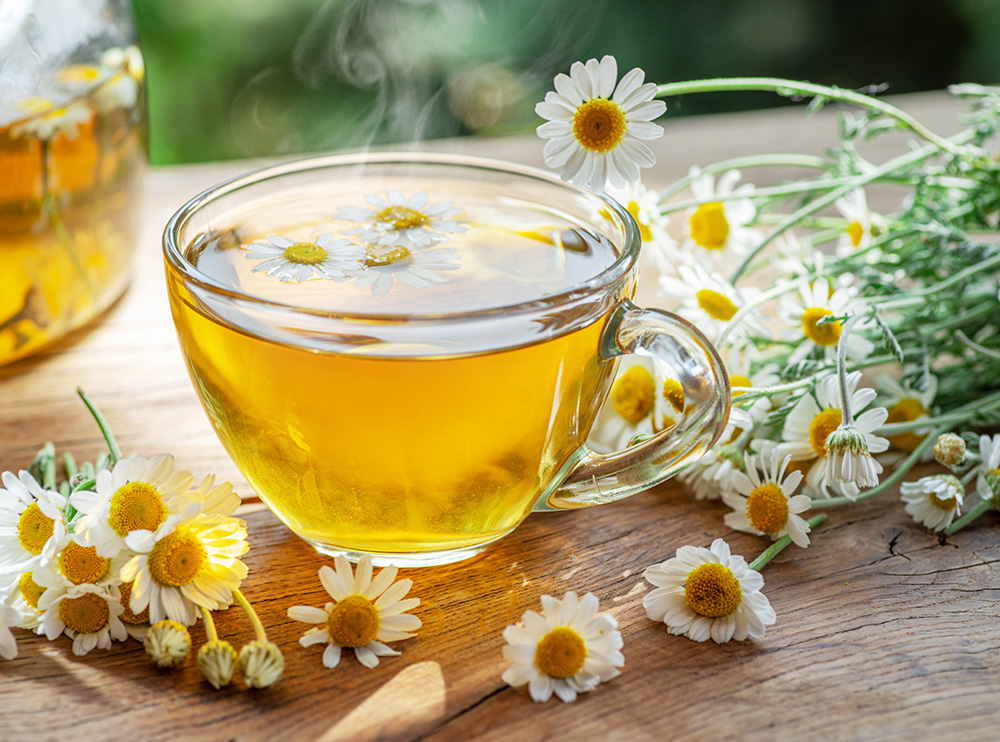
Chamomile, a natural plant, provides numerous advantages for the skin:
– Eases and soothes skin: Chamomile’s anti-inflammatory characteristics decrease redness and discomfort.
– Reduces swelling: Chamomile’s antioxidants and apigenin ease and calm irritated skin.
– Encourages relaxation: Chamomile’s soothing properties aid in reducing stress-related skin problems.
– Enhances skin complexion: Chamomile’s antioxidants help balance skin tone and minimize hyperpigmentation.
– Moisturizes skin: Chamomile’s hydrating properties retain moisture, leaving skin smooth and flexible.
– Relieves skin conditions: Chamomile’s anti-inflammatory properties can help alleviate acne, rosacea, and eczema symptoms.
– Diminishes the look of wrinkles and fine lines: Chamomile’s antioxidants help even out skin texture.
To unlock chamomile’s potential for your skin:
- Utilize chamomile tea bags as a compress: Brew, calm, and apply to the skin.
- Incorporate chamomile into skincare items: Seek out products containing chamomile extract or oil.
- Take chamomile supplements: Seek advice from a healthcare professional before integrating them into your routine.
- Indulge in chamomile tea: Consume hot or iced, sweetened with honey, to promote relaxation and skin wellness.
Hibiscus: Rich in Vitamins and Minerals, Improves Skin Elasticity and Reduces Wrinkles

Hibiscus, a versatile tropical flower, offers a myriad of benefits for the skin:
– Naturally rich in vitamins and minerals: Hibiscus is a treasure trove of vitamins A, C, and E, as well as minerals like calcium and iron.
– Enhances skin flexibility: Vitamin C and alpha-hydroxy acids in hibiscus aid in increasing collagen production.
– Diminishes wrinkles: The antioxidants and vitamin C in hibiscus assist in smoothing skin texture.
– Moisturizes the skin: Hibiscus’s mucilages trap moisture, leaving the skin supple and soft.
– Effective in easing skin issues: Hibiscus’s potent anti-inflammatory properties can significantly alleviate acne, rosacea, and eczema symptoms.
– Diminishes age spots and hyperpigmentation: Hibiscus’s vitamin C and alpha-hydroxy acids assist in evening out skin tone.
– Guards against sun damage: Hibiscus’s antioxidants protect the skin from UV rays.
To utilize the benefits of hibiscus for your skin:
- Consume hibiscus tea: Enjoy it hot or iced, sweetened with honey.
- Utilize hibiscus extract or oil in skincare products: Seek out products that contain hibiscus extract or oil.
- Incorporate hibiscus into face masks: Combine hibiscus powder or extract with other natural ingredients.
- Take hibiscus supplements: Consult a healthcare professional before adding them to your routine.
Lavender: Promotes Relaxation, Reduces Inflammation, and Improves Skin Tone

Lavender, a soothing herb, provides numerous advantages for the skin:
– Encourages relaxation: Lavender’s calming properties aid in diminishing stress-related skin issues.
– Diminishes inflammation: Lavender’s antioxidants and anti-inflammatory characteristics pacify and tranquillize irritated skin.
– Enhances skin complexion: Lavender’s antioxidants promote uniform skin tone and lessen hyperpigmentation.
– Comfort skin conditions: Lavender’s anti-inflammatory traits can ease acne, rosacea, and eczema symptoms.
– Moisturizes skin: Lavender’s hydrating features retain moisture, leaving the skin tender and flexible.
– Diminishes the appearance of fine lines and wrinkles: Lavender’s antioxidants aid in refining skin texture.
– Natural disinfectant properties: Lavender’s antiseptic properties aid in preventing infection and accelerating wound healing.
To utilize the benefits of lavender for your skin:
- Use lavender essential oil in skincare products: Look for products containing lavender oil or incorporate a few drops into your routine.
- Incorporate lavender into face masks: Blend dried lavender buds or oil with other natural ingredients.
- Consume lavender tea: Enjoy hot or cold, sweetened with honey, to encourage relaxation and skin wellness.
- Take lavender supplements: Consult a healthcare professional before integrating them into your routine.
Peppermint: Improves Circulation, Reduces Puffiness, and Cools the Skin
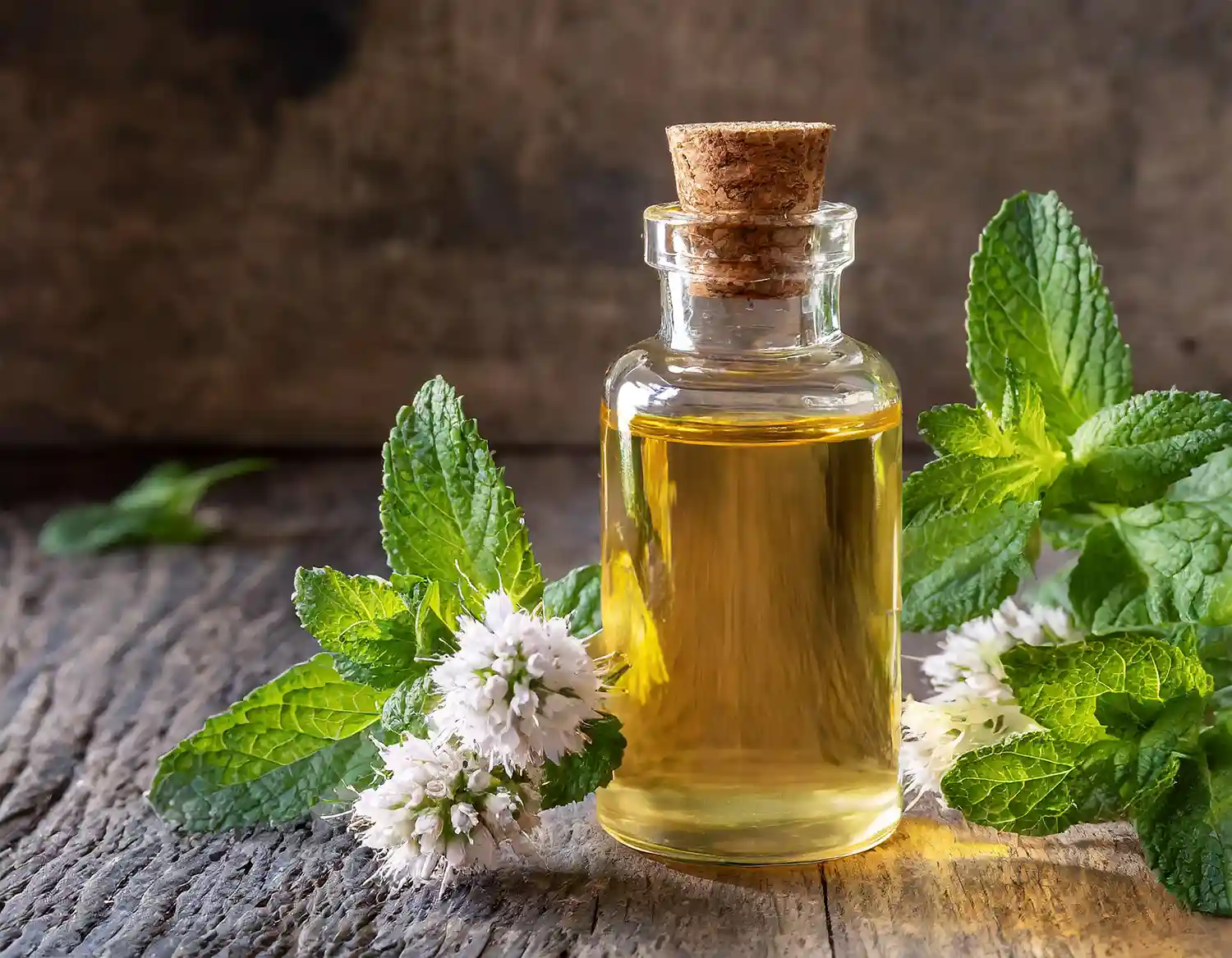
Peppermint, a refreshing herb, offers numerous benefits for the skin:
– Enhances blood flow: Peppermint’s stimulating properties boost circulation, which can reduce puffiness and dark circles.
– Decreases swelling: The cooling effects of peppermint cause blood vessels to constrict, diminishing inflammation and swelling.
– Soothes irritated skin: Peppermint’s menthol content calms the skin, alleviating redness and itching.
– Acts as a natural astringent: Peppermint’s astringent properties help balance the skin’s pH levels and reduce excess oil.
– Alleviates skin issues: Peppermint’s anti-inflammatory properties can help ease acne, rosacea, and eczema symptoms.
– Moisturizes the skin: Peppermint’s moisturizing properties help to retain moisture, leaving the skin smooth and supple.
– Energizes and rejuvenates the skin: Peppermint’s cooling effects stimulate the skin, leaving it feeling revitalized and refreshed.
To make use of peppermint for your skin:
- Use skincare products containing peppermint essential oil: Seek products with peppermint oil or incorporate a few drops into your skincare routine.
- Incorporate peppermint into face masks: Blend dried peppermint leaves or peppermint oil with other natural ingredients.
- Consume peppermint tea: Enjoy hot or iced sweetened with honey to promote circulation and skin health.
- Consider peppermint supplements: Seek guidance from a healthcare professional before integrating them into your routine.
Sage: Rich in an Antioxidants, Improves Skin Elasticity, and Reduces Wrinkles
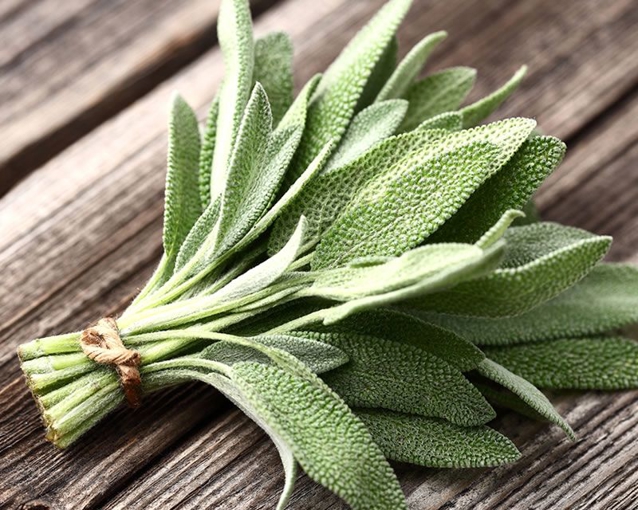
Sage, a plant recognized for its wisdom-enhancing properties, has various advantages for the skin:
– Full of antioxidants: Sage’s substantial antioxidant content shields the skin from damage caused by free radicals.
– Enhances skin flexibility: Sage’s antioxidants and fatty acids boost collagen production, improving skin flexibility.
– Minimizes wrinkles: Sage’s antioxidants and anti-inflammatory properties help smooth out the skin, reducing the appearance of fine lines and wrinkles.
– Moisturizes the skin: Sage’s moisturizing properties lock in moisture, leaving the skin smooth and pliable.
– Calms skin irritations: Sage’s anti-inflammatory properties can help alleviate the symptoms of acne, rosacea, and eczema.
– Diminishes age spots and hyperpigmentation: Sage’s antioxidants help even out skin tone, reducing the visibility of age spots.
– Natural antiseptic characteristics: Sage’s antiseptic properties prevent infection and foster wound healing.
To utilize sage’s benefits for your skin:
- Utilize sage essential oil in skincare products: Seek out products containing sage oil or incorporate a few drops into your regular routine.
- Integrate sage into face masks: Blend dried sage leaves or sage oil with other natural ingredients.
- Consume sage tea: Enjoy hot or chilled, sweetened with honey, to support skin health.
- Take sage supplements: Always consult a healthcare professional before incorporating them into your routine.
Ginkgo Biloba: Improves Circulation, Reduces Inflammation, and Promotes Collagen Production

Ginkgo Biloba, an ancient plant, offers numerous benefits for the skin:
– Boosts circulation: Ginkgo Biloba’s flavonoids and terpenoids improve blood flow, reducing puffiness and dark circles.
– Alleviates inflammation: Ginkgo Biloba’s anti-inflammatory properties pacify and soothe irritated skin.
– Stimulates collagen production: Ginkgo Biloba’s antioxidants and flavonoids encourage collagen formation, enhancing skin elasticity.
– Moisturizes the skin: Ginkgo Biloba’s hydrating properties seal in moisture, leaving the skin soft and supple.
– Shields against environmental stressors: Ginkgo Biloba’s antioxidants protect the skin from pollution, UV rays, and other environmental stressors.
– Enhances skin tone and texture: Ginkgo Biloba’s antioxidants and flavonoids help improve skin tone and diminish fine lines and wrinkles.
– Improves skin radiance: Ginkgo biloba’s antioxidants and flavonoids help brighten and even out skin tone, resulting in radiant-looking skin.
To utilize the skin benefits of Ginkgo Biloba:
- Incorporate Ginkgo biloba extract into skincare products: Look for products that contain Ginkgo biloba extract or add a few drops to your routine.
- Consider Ginkgo Biloba supplements: Seek advice from a healthcare professional before integrating them into your routine.
- Consume Ginkgo Biloba tea: Enjoy hot or iced, sweetened with honey, to support skin health.
Conclusion
Integrating anti-aging herbs for the face into your skincare regimen enables you to tap into the natural benefits for a more youthful and radiant look. These herbs offer a natural and effective way to reduce fine lines and wrinkles, promote collagen production, and improve skin elasticity, helping revitalize your appearance. To prevent signs of ageing or reverse existing damage, the anti-aging herbs for the face outlined in this article are a powerful ally in your quest for radiant, healthy skin. Say goodbye to wrinkles! Discover the best anti-aging herbs for a youthful, glowing face.
FAQs
Q: How can I incorporate anti-aging herbs into my skincare routine for glowing face?
A: Utilize anti-aging herbs by creating facial masks, infusing them in oil or water, or taking them as supplements.
Q: Are anti-aging herbs suitable for all skin types?
A: While most anti-aging herbs are gentle and compatible with all skin types, conducting a patch test and beginning with small quantities is essential to prevent potential sensitivities or allergic reactions.
Q: Can anti-aging herbs indeed reverse the aging process?
A: Anti-aging herbs can help minimize signs of aging, such as wrinkles, fine lines, and age spots, though they might not completely reverse the aging process.
Q: How long does it take to observe results from using anti-aging herbs?
A: Results may differ, but with regular use, you may begin noticing improvements within a few weeks to a few months.

